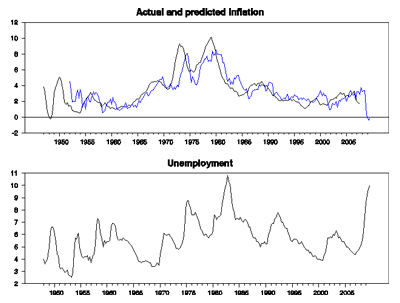The White House has published Remarks by the President on Financial Reform:
That’s why we are seeking reforms to protect consumers; we intend to close loopholes that allowed big financial firms to trade risky financial products like credit defaults swaps and other derivatives without oversight; to identify system-wide risks that could cause a meltdown; to strengthen capital and liquidity requirements to make the system more stable; and to ensure that the failure of any large firm does not take the entire economy down with it. Never again will the American taxpayer be held hostage by a bank that is “too big to fail.”
Now, limits on the risks major financial firms can take are central to the reforms that I’ve proposed. They are central to the legislation that has passed the House under the leadership of Chairman Barney Frank, and that we’re working to pass in the Senate under the leadership of Chairman Chris Dodd. As part of these efforts, today I’m proposing two additional reforms that I believe will strengthen the financial system while preventing future crises.
First, we should no longer allow banks to stray too far from their central mission of serving their customers. In recent years, too many financial firms have put taxpayer money at risk by operating hedge funds and private equity funds and making riskier investments to reap a quick reward. And these firms have taken these risks while benefiting from special financial privileges that are reserved only for banks.
…
I’m proposing a simple and common-sense reform, which we’re calling the “Volcker Rule” — after this tall guy behind me. Banks will no longer be allowed to own, invest, or sponsor hedge funds, private equity funds, or proprietary trading operations for their own profit, unrelated to serving their customers. If financial firms want to trade for profit, that’s something they’re free to do. Indeed, doing so –- responsibly –- is a good thing for the markets and the economy. But these firms should not be allowed to run these hedge funds and private equities funds while running a bank backed by the American people.
In addition, as part of our efforts to protect against future crises, I’m also proposing that we prevent the further consolidation of our financial system. There has long been a deposit cap in place to guard against too much risk being concentrated in a single bank. The same principle should apply to wider forms of funding employed by large financial institutions in today’s economy. The American people will not be served by a financial system that comprises just a few massive firms. That’s not good for consumers; it’s not good for the economy. And through this policy, that is an outcome we will avoid.
Wow. This came out of the blue. But Comrade Peace-Prize needs to do something dramatic to regain the political momentum after his recent debacle.
We’re back to the days of Bush! Something this sweeping should have been announced multilaterally, and only if the world’s other big players (like, f’rinstance, the UK just for starters) agreed. Ideally it would have been done through BIS.
But it will get the political momentum back – who cares whether or not it’s unilateral?
Update: Bloomberg has picked up on the unilateralism aspect:
“This is absolutely unilateral,” said Simon Gleeson, a regulatory lawyer at Clifford Chance LLP in London. “This is Glass-Steagall Mark Two,” he added. “Banks can take just as much risk in commercial lending as they can in proprietary trading as Northern Rock and HBOS show,” he said referring to two lenders bailed out by the U.K. government.
Obama’s call “is moving a long way from the existing Basel recommendations on capital charges, which is another way of dealing with this issue,” said David Green, a former Bank of England and U.K. Financial Services Authority official who now advises regulators outside Britain.
The big problem is going to be defining “propietary”:
President Obama’s plan to curb risk- taking by banks hinges on how rigidly regulators define proprietary trading at firms such as Goldman Sachs Group Inc. and JPMorgan Chase & Co.
Goldman Sachs, which generated at least 76 percent of 2009 revenue from trading and principal investments, gets the “great majority” of transactions from customers, according to Chief Financial Officer David Viniar. About “10-ish percent” of the New York-based firm’s revenue comes from “walled-off proprietary business that has nothing to do with clients,” he said on a conference call yesterday.
…
The White House defines proprietary trades as those not done for the benefit of customers, according to a senior administration official. Regulators would have the power to ask banks whether certain trades are related to client business, the official said. If they’re not, the regulators could order firms to exit the positions.
At banks such as Goldman Sachs, drawing the line isn’t easy, Viniar said.
“If a client wants to sell us a security, we’ll buy the security,” Viniar said. “That risk, which is principal risk, ends up on our balance sheet. It’s the great bulk of what we do all day long in all of our products for all our clients.”
Update 2010-1-22: I didn’t stress this before, given my shock at the concrete proposals, but I will draw attention to the deprecating phrase:
These are rules that allowed firms to act contrary to the interests of customers
Why shouldn’t firms act contrary to the interests of their counterparties? There is no fiduciary duty in a counterparty relationship when trading as principal. Zip, Zero, Zilch. Those who expect otherwise should go back to kiddie school and play some nurturing non-competitive games.
